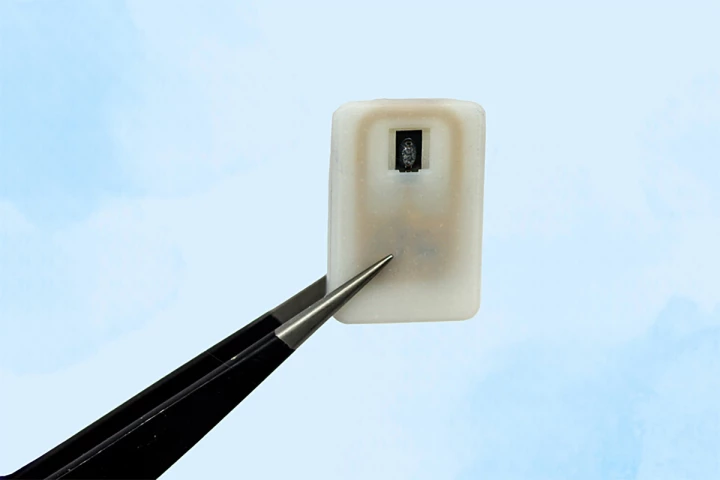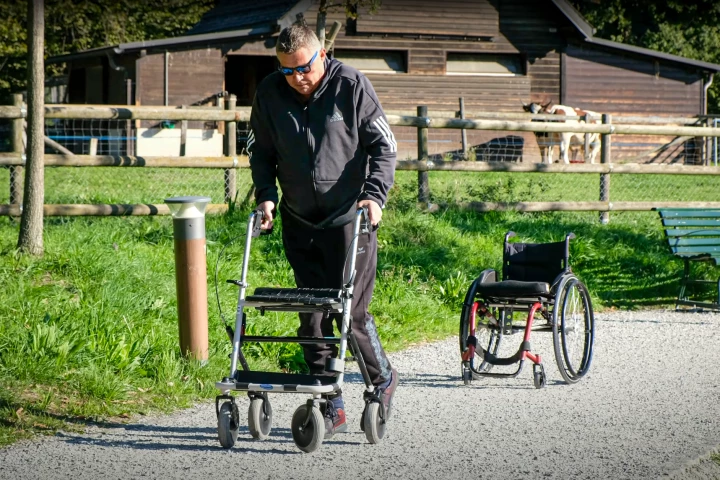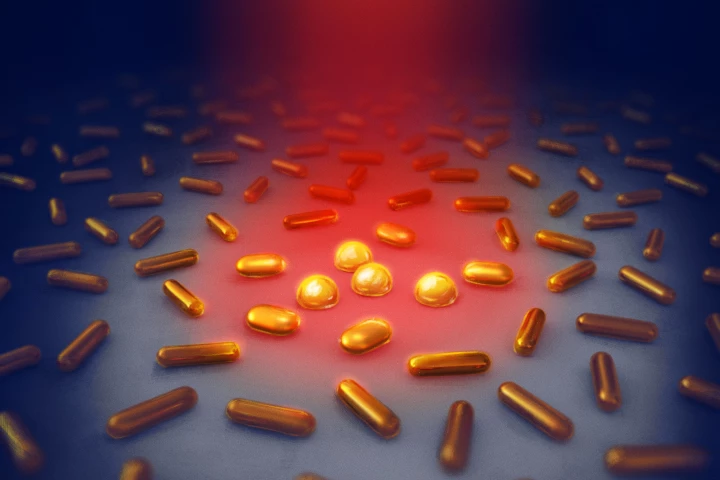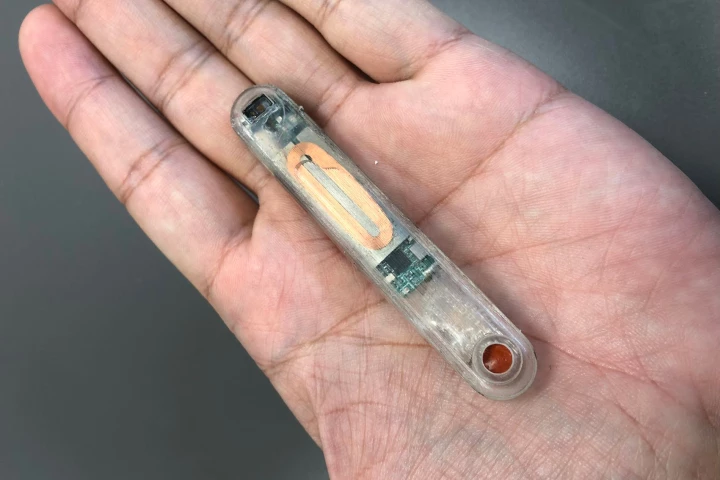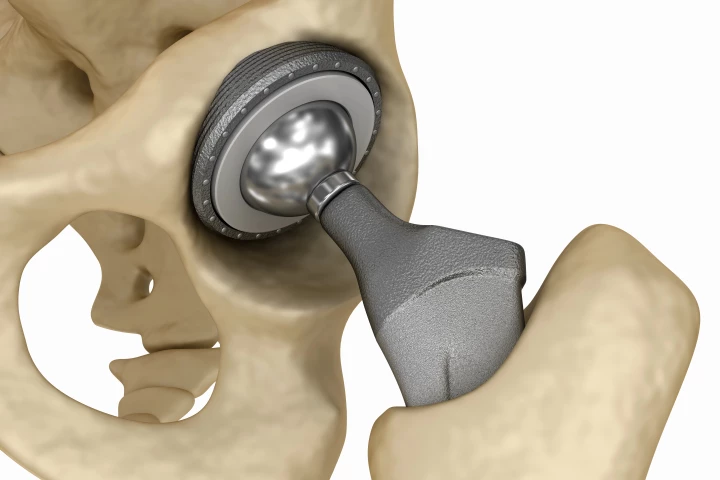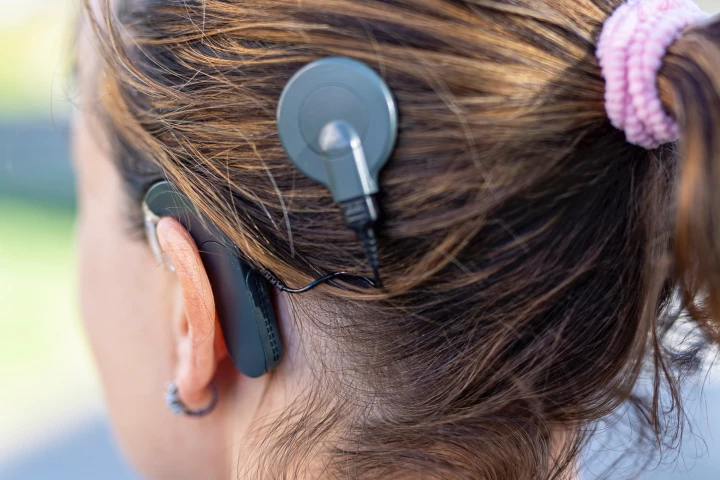Implant
-
Engineers at MIT have developed a coin-sized device that can be safely implanted in the body to automatically deliver a dose of glucagon when a sensor notices blood glucose levels dropping too low – and potentially save the user's life.
-
It's never a good thing, when a bacterial biofilm forms on the surface of a medical implant. There could soon be a new way of eradicating such films, however, using tiny remote-control liquid-bodied robots.
-
Two patients with spinal injuries have seen improvements in their ability to walk again, thanks to deep brain stimulation. Intriguingly, the therapy targets a region of the brain that normally isn’t associated with motor skills.
-
When someone receives an implant such as an artificial hip, there's a real risk of an infection occurring at the implant site. According to a new study, however, a covering of bacteria-frying gold nanorods could keep that from happening.
-
For babies born with a certain heart defect, implantation of a "shunt" is essential to their survival. A new type of shunt can be expanded using light after it's been implanted, potentially eliminating the need for more heart surgeries down the road.
-
When someone overdoses on opioids, it's critically important that they receive a dose of the opioid-reversing drug naloxone as soon as possible – otherwise, death is a distinct possibility. That's where a new implant comes in, as it automatically dispenses naloxone from within the body.
-
While titanium hip and knee implants do restore mobility to a great many people, they're still subject to failure. A new alloy could help change that, simply by adding a smidge of bendy, bacteria-killing gallium to the mix.
-
While cochlear implants do allow some deaf people to hear, they also incorporate potentially problematic external components located on the side of the head. That could soon change, however, thanks to an experimental new implantable microphone.
-
Implantable neurological technology has advanced drastically, offering a return to normalcy for some people with neurological disorders. But given its rapid progression, what happens when these implants become obsolete or its manufacturer goes bust?
-
Although you may know when you need to pee, such is not the case with everyone. A new implantable sensor is designed to help those other folks, by sending a smartphone alert when their bladder is full.
-
A mussel protein could one day keep infections from occurring at the site of bone implants such as artificial hips. And while the protein does kill the microbes, it should still limit the development of antibiotic-resistant "superbacteria."
-
If someone is already suffering from heart failure, they certainly shouldn't have to deal with a serious infection on top of that. A new type of electrical wire, designed for powering implanted heart pumps, could help keep that from happening.
Load More
